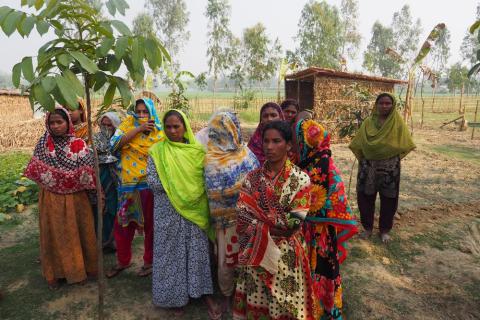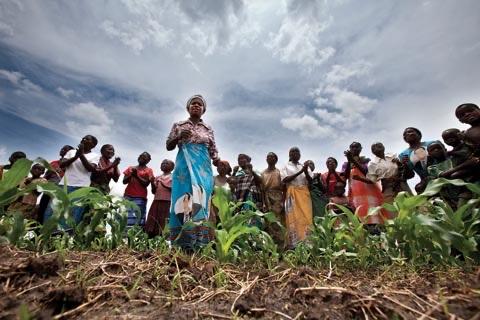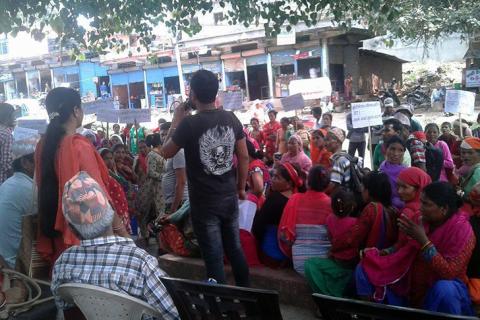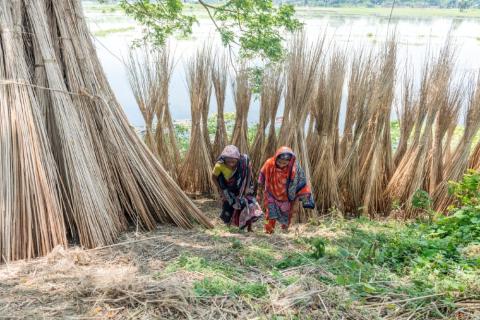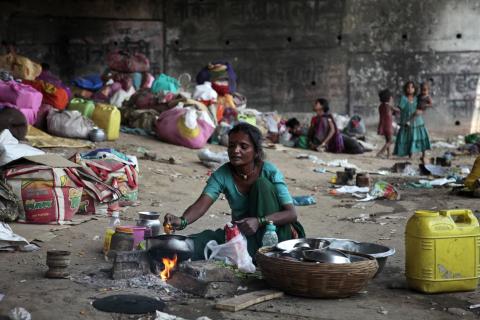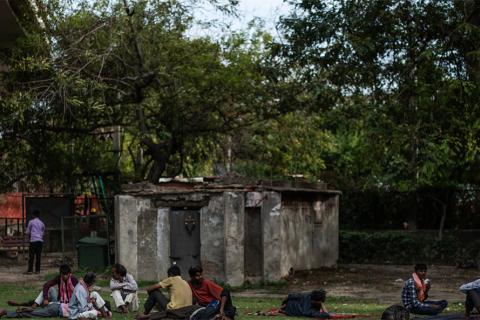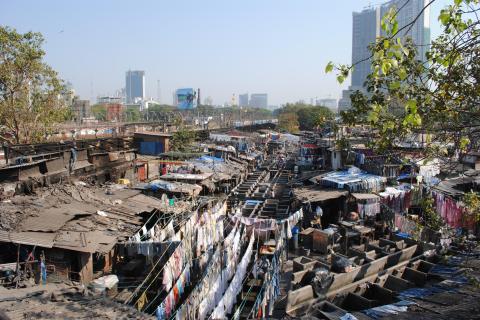Keeping the promise: When governments let up, civil society, academia and private sector must step up
My name is Silas Siakor and I am the Country Manager at IDH, The Sustainable Trade Initiative in Liberia. I have worked on natural resource governance for the past 20 years - with a focus on land and forest. I am deeply honored to speak at this year’s conference to share some reflections based on the Liberian experience and to send a clarion call to civil society, academia, and private sector to step up and do more to strengthen land governance. The future of our planet depends on it.
Unequal land, unequal societies
A really important report from the International Land Coalition and Oxfam is just out called ‘Uneven Ground: Land Inequality at the Heart of Unequal Societies’, along with 17 supporting papers. Through new analysis it shows that land inequality is even larger than previously thought, and that this has dramatic effects on poor people’s livelihoods, particularly those of women and young people.
History of land rights movement in Nepal
Article written by Radha Krishna Khadka for Online Khabar, originally posted at: https://english.onlinekhabar.com/history-of-land-rights-movement-in-nepal.html
Photo: A rally organised in Surkhet district headquarters Birendranagar demanding establishment Organised Settlement Commission on September 07, 2017
- - - - - - - - - - - -
Helping indigenous communities secure land rights in Nepal
Written by Jagat Deuja and Rachel Knight for IIED and CSRC. Originally posted at: https://www.iied.org/helping-indigenous-communities-secure-land-rights-nepal
Main photo: Young 'social mobilisers' interviewed more than 2,700 landless or untenanted families and gathered the data that was needed for the government to register their tenure (Photo: copyright Kumar Thapa, CSRC)
Why food production hinges on women
Landless women should be recognized as farmers, and given their due tenurial rights
“Small farmers feed the world” -- does this make any sense to us? If it does, then what is the paradigm shift and what has it done, or is trying to do differently, to uphold and promote this hard truth?
Informality of land and labour poise to expand COVID Toll: Securing Land Tenure, also critical to secure Nutrition
Covid-19 pandemic has further worsened India’s hunger and malnutrition woes, more so for the millions of informal workers, now struggling to meet two ends in their rural homes, post the mass migration from their place of works, during lockdowns. Their embedded informality over labour, land, housing tenure, has uprooted and shaken them with loss of income, occupation and habitat, multiplying their already entrenched nutrition vulnerability.
Reviving the post Covid-19 Indian Economy and the Twin Challenges of Informal Workers and Slums
Informal workers and desperate journeys
‘Corona lockdown’ led to one of the biggest migrations in India’s modern history. Hungry, thirsty and hapless- millions of migrant workers who form the backbone of our glittering megacities- took to the road, on desperate journeys home. These migrant workers are part of the informal economy- toiling away in construction sector and small factories, recycling waste or doing other precarious jobs. Many of them are landless or small/marginal farmers from rainfed farming areas, migrating seasonally.
An Interview with Professor Howard Stein at the recent Conference on Land Policy in Africa
During the recent Conference on Land Policy in Africa, we had a chance to sit down and speak with Professor Howard Stein of the University of Michigan. Scroll below to read more.
1) Can you tell us a little bit about your research, work and background?
Eight land-related topics that need to be prioritized and urgently addressed in India
By Tim Hanstad, Co-Founder & Senior Advisor, Landesa
This is the second blog in a series of two that are based on a keynote address made at the 2018 India Land Development Conference.
Is There a Human Right to Land?
Ask a land rights defender if there is a human right to land, and she will likely say “Yes, without a doubt.” For people around the world, land is a source of food, shelter, and livelihoods; it’s an economic asset, a crucial safety net, a link with culture and social identity, even a living relative or ancestor. Given their importance, land rights are surely human rights.

